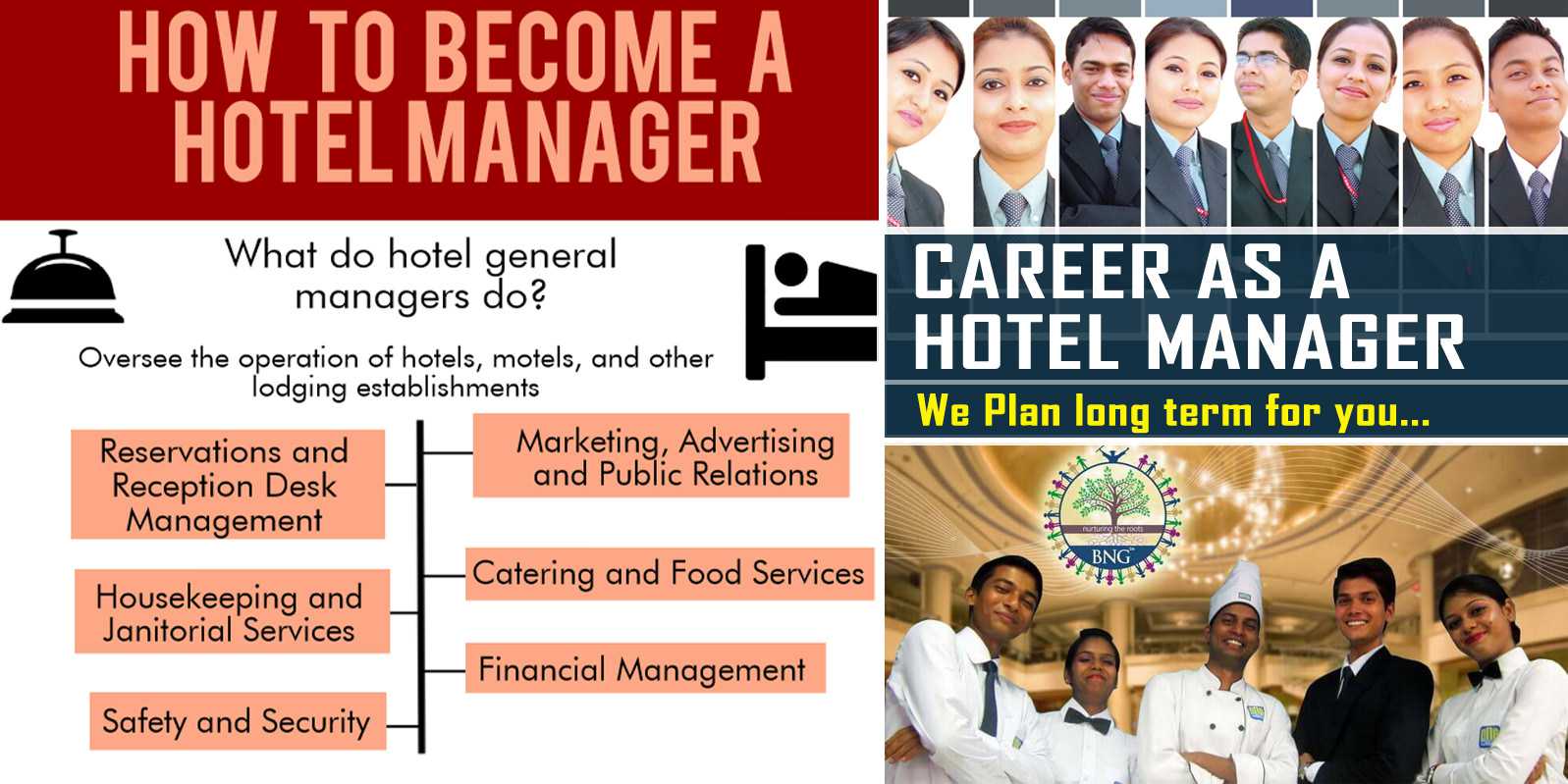
General Manager
Hotel General Manager Responsibilities and Relationship
The people with whom food service general manager s typically interact fall into two basic categories: primary groups and secondary groups. The primary groups can include guest, owners, boards of directors, area and regional directors, subordinate managers, and employees. These are people to whom the general manager has the greatest and most direct responsibility. The general manager also has a more indirect responsibility to the secondary groups: suppliers, the local community, and government regulatory agencies.
Primary Groups and General Manager
Guests. General Manager s of commercial and noncommercial operations have equal concerns about those to whom their services and products are provided. These persons may be called guest in commercial operations, and patients, students, residents, or employees in noncommercial operations, but it is always important to emphasize the needs of those being served and Hotel General Manager s Responsibilities and Relationship.
Owners. Owners of commercial operations and board of directors of noncommercial facilities are vitally concerned about their operation. In a corporation, the owners are stockholders; in a partnership, the owners are two or more people with investment interest; in the case of a single owner, the owner is frequently the general manager as well. In a noncommercial operation, the “owners” of the organization for which food service is provided may be a government agency, a for-profit or not-for-profit corporation headed by a board of directors, or another entity.
Owners of commercial operations may also have more personal objectives that involve ego needs or the desire for accomplishment. Those with top-level responsibility for noncommercial operations may be concerned about societal, financial, healthcare, and other issues for Hotel General Manager s Responsibilities and Relationship.
A manager’s primary responsibility to the owners is to make the food service operation an economic success or to ensure that it meets other goals that drive the reasons for its existence. Often this means meeting or exceeding the properties operating budget or profit plan. The many factors that go into making an operation an economic success define the challenge of management.
Area/Regional Directors. Food service general manager s working for multi-unit chain organizations have an immediate supervisor not yet mentioned: the area/regional director.
Managers. The food service general manager who works at a large property probably assists a higher-level manager. The food service manager’s job is to meet job responsibilities and perform other tasks as directed by his or her manager, who is responsible for evaluating employee’s performance. Sometimes it is easy to resent one’s boss or misunderstand the boss’s motives.
Employees. Food service general manager s not only manage employees, they manage for employees. Managerial decisions have an impact on making the operation a success, which provides employees with a place to earn a living, make friends, and plan a future.
Secondary Groups and General Manager
Suppliers. Responsibilities to suppliers include establishing a reasonable working relationship and being fair and ethical in all dealings with them. Food service general manager s must guard against having an “I win-you lose” attitude toward suppliers.
There are at least two other reasons for maintaining a good relationship with suppliers:
- suppliers and their employees are potential guest of the food service operation, and
- They may discuss how they are treated at the operation with others who may be potential guests.
Local Community. The community in which the food service organization operates is involved in an ongoing relationship with it. In many instances, entire sections of communities may be revitalized, or may deteriorate, due to the status of nearby hospitality operations such as hostels and restaurants.
A community may have common concerns that general manager s should be aware of, including the following:
- Nuisance Concerns. Excessive noise and rowdy guest gathering in the parking lot are nuisances that general manager s should deal with.
- Environmental concerns. General Manager s should ensure that their property grounds are free from litter, and that no litter blows from the property onto neighboring properties. Using biodegradable detergents and disposable supplies is another way a property can show its sensitivity to environmental concerns.
- Entertainment concerns. In operations that book singer, comedians, and other entertainment, general manager s should try whenever possible to provide entertainment that is desirable to and appropriate for the community.
- Civic concerns. General Manager s can show their support for the local community by supporting charitable, educational, and other civic groups.
Government Regulatory Agencies. Government regulatory agencies collect taxes and other fees and ensure that applicable laws and regulations are followed. Concerns of government agencies include sanitation, safety, building codes, employees, and licenses, among many others which is good for Hotel Managerial Responsibilities and Relationship.
Important Key Terms for Hotel General Manager
Controlling –The management task of measuring actual results against expected results, such as measuring actual sales against expected or budget sales. Controlling also refers to safeguarding the operation’s property and income.
Coordinating –The management task of assigning work and organizing people and resources to achieve the operation’s objectives.
Directing –The management task of supervising, scheduling, and disciplining employees. Supervising includes such functions as training and motivating employees.
Empowerment –The redistribution of power within an organization that enables general manager s, supervisors, and employees to perform their jobs more efficiently and effectively. The overall goal is to enhance service to guest and increase profits for the organization by releasing decision-making responsibility, authority, and accountability to every level within the organization.
Evaluating –The management task of determining the extent to which planned goals are attained.
Hospitality –The cordial reception of guests.
Job specification –A staffing tool that identifies the personal qualities necessary to perform a job effectively.
Management –The use of resources to attain organizational objectives.
Organizing –The management activity that attempts
To best assemble and use limited human resources to attain organizational objectives. It involves establishing the flow of authority and communication among people.
Outsource –Contracting an outside person or organization to perform jobs or service that would otherwise be done by a business’s employees.
Planning –The management task of creating goals, objectives, and programs of action to reach those goals and objectives. Planning should be done before undertaking other management tasks.
Role model –A person whose behavior or success on the job can be imitated by others.
Staffing –The management activity of recruiting and hiring applicants.
Subordinate –At a lower level in rank or authority.
Tag:general manager definition, general manager duties, general manager hotel job description, general manager hotel job description sample, general manager hotel jobs, general manager hotel salary, general manager job description, general manager job description sample, general manager jobs, general manager responsibilities, general manager resume, general manager salary, hotel assistant general manager jobs, hotel general manager jobs abroad, hotel general manager jobs overseas, hotel general manager recruiters




